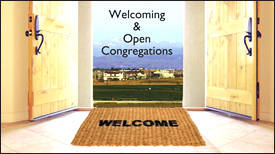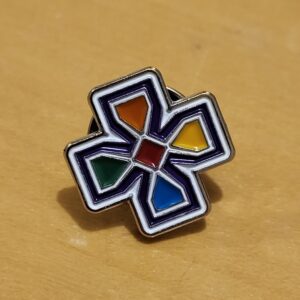By Pat Ashworth
THE Archbishop of Canterbury’s notion of a two-track Anglican Communion is flawed, say 13 organisations working towards an “inclusive” Church of England.
The group expresses “grave concerns” about the implications of Dr Williams’s reflections in Covenant, Communion and the Anglican Future, a response to the actions of the General Convention of the Episcopal Church in the US (News, 31 July).
It finds the Archbishop’s reference to same-sex unions as “chosen life-style” to be inconsistent with his previous statements on committed and faithful same-sex relationships, and “at odds with our reading of the message of the gospel. . . While we applaud his assertion that we are called ‘to become the Church God wants us to be, for the better proclamation of the liberating gospel of Jesus Christ’, we find no indication of how that can be achieved for those who are not heterosexual,” the joint statement says.
It is signed by Accepting Evangelicals, Changing Attitude, The Clergy Consultation, Courage, Ekklesia, the Evangelical Fellowship of the Lesbian and Gay Anglicans, the General Synod Human Sexuality Group, the Group for the Rescinding of the Act of Synod, Inclusive Church, the Lesbian and Gay Christian Movement (Anglican Matters), the Modern Churchpeople’s Union, Sibyls, and the WATCH National Committee.
The Revd John-Francis Friendship, Rector of St Andrew’s, Romford, has written an open letter to Dr Williams which he distributed on Facebook this week, and which continues to attract signatures. By Wednesday, 84 people had signed it.
The letter expresses concern at the tone and content of Dr Williams’s reflections; and while recognising that he might well “feel caught between a rock and a hard place”, it urges him: “At a time when religious fundamentalism seems to be on the ascendant, we urge you not to negate that prophetic voice we believe you have in the past expressed in your own vocation.”
Mr Friendship said on Wednesday: “I wanted to give ‘ordinary’ people a chance to say ‘Not in my name’.”


